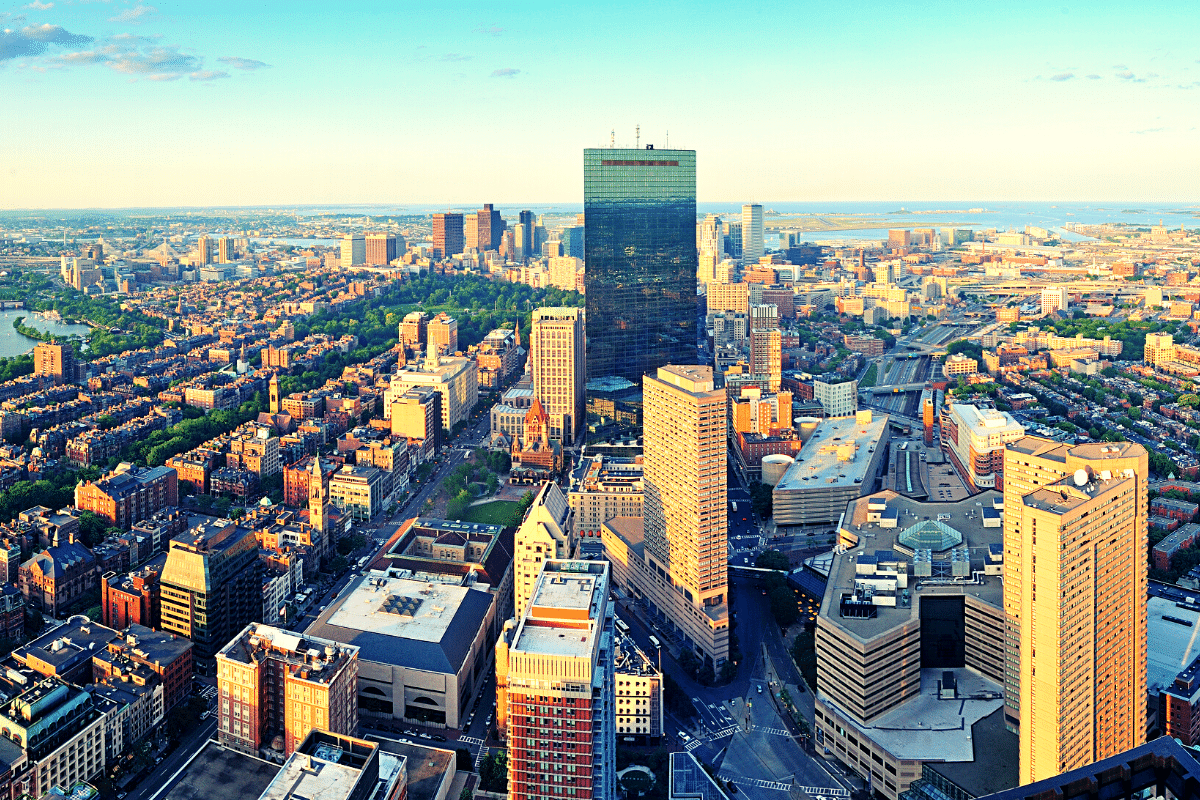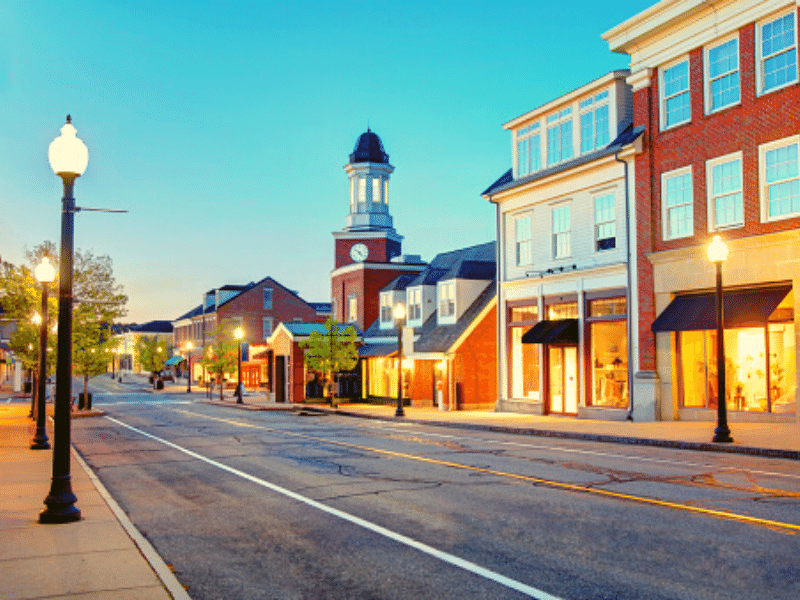
In today’s world, it is becoming increasingly important to consider the pros and cons of small-town living vs big-city living. While both types of communities offer their own unique appeal, you must take a holistic view as to which one will better suit your needs and lifestyle.
If you’re thinking of moving to a new area with different housing options, it’s a good idea to do your research on small-town living vs big-city living before making the leap. These two types of locations can have an impact on your job opportunities, the cost of living, the type of neighbors you have, and other elements that are important to consider.
In this article, we will explore some of the differences between these two locations so that you can make an informed decision when choosing where to live.
Real estate in small towns vs big cities
Small towns have cheaper real estate compared to big cities. The main reason for this is the difference in population density. As you know, big cities have a much larger population than small towns, so real estate prices are naturally going to be higher.
Small towns have a lower cost of living, which means that your grocery bills and utility bills will likely be less as well. This is another reason why it’s a good idea to move to a smaller town.
What is small-town living?
A small town is typically a rural community that has a population of fewer than 10,000 people. These types of towns are often located in remote areas and don’t have the same amenities as big cities, making them less desirable to some people.
Small towns often have simpler lifestyles that revolve around family values and traditional values. These types of towns are also often referred to as “home towns” by their residents. To give you an idea of how many people live in a small town, according to the U.S. Census Bureau 37% of the population in the U.S. lives in small towns.
The population of small towns across the U.S. has been growing in recent years, with some attributing this growth to a decline in the cost of living.
What is big city living?
Big city living is typically associated with living in a major U.S. city such as New York City, Boston, or Los Angeles. In most cases, these cities have populations of more than 1 million people. Big cities often have large populations and have reputations for having active and hectic lifestyles, often revolving around business, culture, and the arts.
These cities are often hubs for business and commerce, and some of them are considered the world’s leading financial capitals. Some of the most populous cities in the U.S. include New York, New York (8.6 million people), Los Angeles, California (4.1 million people), and Chicago, Illinois (2.7 million people).
While big cities offer exciting and fast-paced lifestyles, they also come with higher costs of living and a greater risk of crime.

Pros of small-town living
When moving to a small town, you are likely to enjoy a simpler and slower-paced lifestyle that allows you to focus on family values. Small towns often have a tight-knit community that offers a sense of belonging and makes it easy for residents to connect with each other.
An example of a nice small town to live in is Granbury Texas. A few reasons to move to Granbury is affordable housing, The cost of living in Granbury is lower than in many other big cities in Texas. The average cost of a home in Granbury is roughly $130,000, which is lower than the average home price in the Texas cities of Austin, Houston, and Dallas.
Granbury is home to the Granbury School District, which is rated as “excellent” by the Texas Education Agency.
Small towns have a lower cost of living as compared to big cities, making it easier for residents to comfortably afford their everyday expenses. Small towns also often have lower crime rates than big cities, making it a safer place to live.
Pros of big city living
Bigger cities have a wide range of employment opportunities, and there are plenty of opportunities in major U.S. cities, with some being leaders in commerce, fashion, and finance.
Major cities often host various cultural events and festivals that are sure to appeal to a wide range of people. These events are also great for meeting new people and increasing your social circle.
Big cities have easy access to transportation systems that make it easy for residents to travel from one place to another.
Major cities are often associated with having a high standard of living, which means you are more likely to earn more money than in smaller towns.
Cons of small-town living
Small towns often lack diversity, which means that it can be difficult to find people with different backgrounds, cultures, or religions. Smaller towns also don’t have the same employment opportunities as major cities and therefore may not be suitable for everyone.
Small towns don’t have the same attractions as major cities, so it may be difficult to find something to do on weekends or during your free time.
Cons of big city living
Major cities usually have a higher cost of living than smaller towns, which may make it more challenging for some people to afford their day-to-day expenses. Major cities are often notorious for having high levels of pollution, which can be harmful to your health.
Big cities often have higher levels of crime than smaller towns, so you must be careful when walking around at night. They have busier and more hectic lifestyles that may not appeal to everyone.

Final Thoughts
When comparing small-town living vs big-city living, you should consider your own personal values and what will make you happy. While it’s important to think about the various benefits and drawbacks of each type of community, it’s also important to not be too critical and to remember that no two places are exactly the same.
Instead, it’s important to view each place as its own unique community with its own set of advantages and drawbacks. From there, you can make an informed decision on which type of place is right for you and your family.